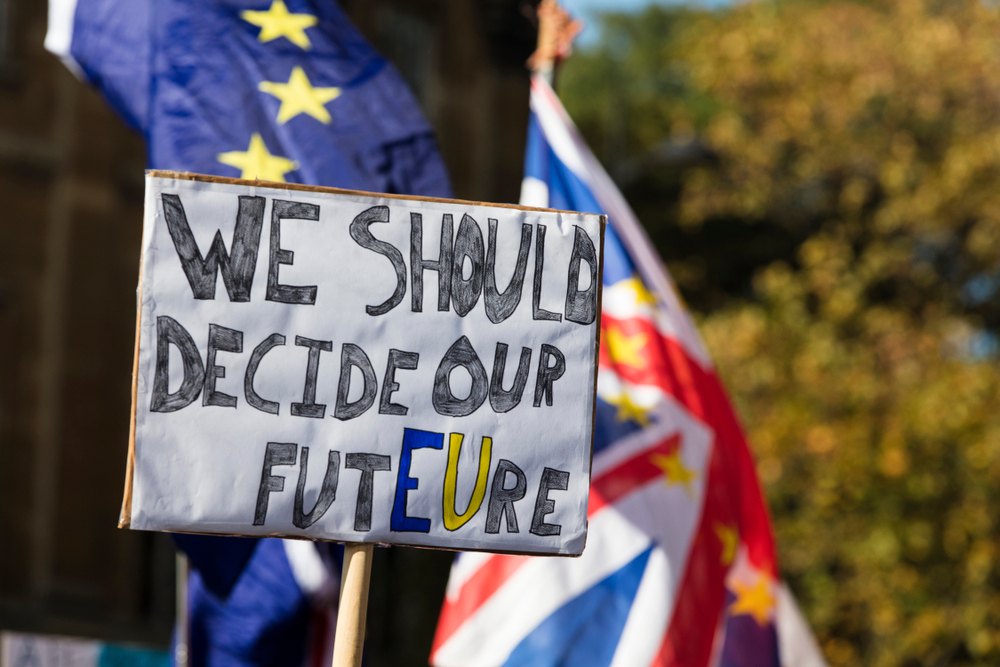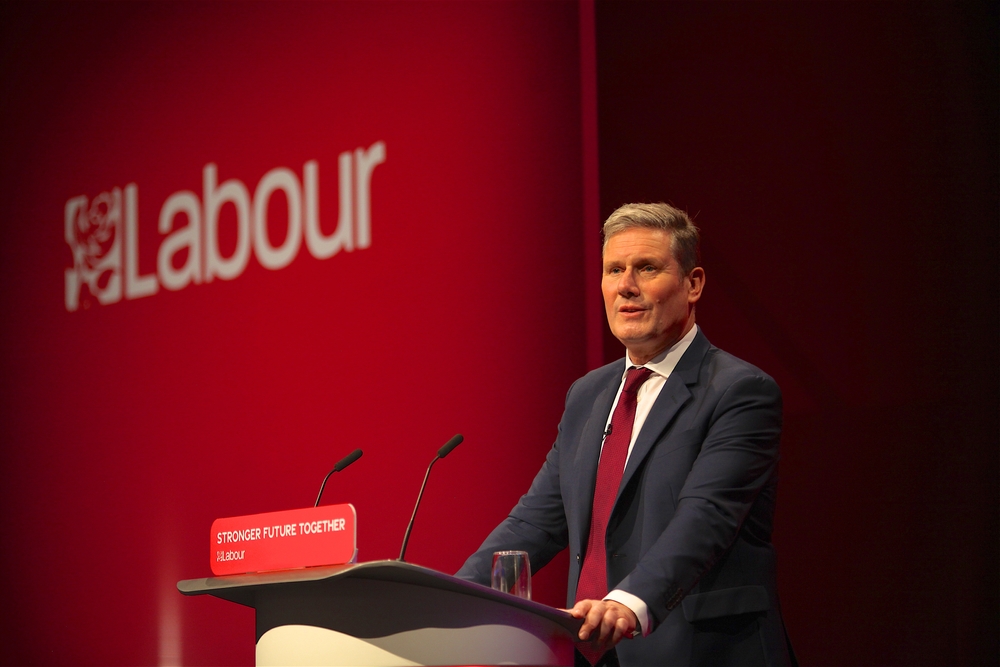‘Equal votes for unequal minds’
Following the Brexit Referendum in 2016, the world has seemingly experienced a rising tide of populism throughout the world. Whilst this tide ebbs and flows, it now routinely breaches the defences of nations – shocking the sensibilities of journalists and centrist politicians alike. This phenomenon, which has seen the rise of all manner of demagogues and would-be champions of the silent majority, has convinced a number of onlookers that ‘the people’ simply cannot be trusted; answering a thoroughly anti-democratic spasm with further contempt for the democratic ideal.
Following the UK’s shock vote to leave the European Union, a number of academics and self-purported liberals decided to experience a number of ‘mask-off’ moments. Richard Dawkins, writing for Prospect, offered readers a piece entitled ‘Ignoramuses should have no say on our EU membership—and that includes me’. His views were neatly summarised by the lines ‘I, and most other people, don’t have the time or the experience to do our due diligence on the highly complex economic and social issues facing our country in, or out of, Europe. That’s why we vote for our Member of Parliament, who is paid a good salary to debate such matters on our behalf, and vote on them. The European Union referendum, like the one on Scottish independence, should never have been called.’
The well-known philosopher A. C. Greyling has offered similar perspectives, effectively arguing that voters and decision-makers continually need protecting from their own decisions. Namely because he often doesn’t agree with them. Whilst the root causes and consequences of Brexit will be debated for an age, one thing is absolutely certain. The disdain felt by intellectuals, middle-class liberals, and ‘popular’ personalities for a significant amount of the population is self-evident. All critiques of direct or participatory democracy, it seems, inevitably take the form of anti-democratic sentiment in general.
Too much democracy

Richard Dawkin’s Prospect article is as disingenuous as it is infantile. His insincere self-critique aside, it hinges upon the absurd notion that the electorate has the faculties to select the right personalities but not the right ideas. That’s why we have a representative democracy, you see, to choose the people who know how to run a country of some 67 million souls. Precisely who these mysterious superhumans are, of course, remains a complete mystery. What is clear, however, is that it’s not you, your neighbours, your doctor, or your electrician.
This technocratic vision of democracy rests upon the notion that running a modern state requires a particular skillset, a technical education of some kind, comparable to those required by nuclear technicians, architects, and fighter pilots. Some people are ‘experts’ at politics, whereas the rest of us aren’t. The result is that we’re to believe that the personalities populating the Conservative, Labour, and Liberal Democratic parties represent a distinct class of people, possessing a form of knowledge and ability that most of us simply cannot conceive of.
Anyone who follows the politics of the United Kingdom or the United States knows, instinctively, how profoundly childish this notion is. Who can seriously look upon the composition of our political institutions and claim that they’re now, or have ever been, the preserve of intelligent, well-meaning people? It’d be far easier to defend the motion that the reverse is true.
Regardless, it’s now in vogue amongst centrists, liberals, and self-described ‘educated’ people to vent endless spleen at direct forms of democracy, especially referendums. The result is a complete failure to examine the origins of populism, and to effectively share in the contempt the likes of Boris Johnson and Donald Trump have for their respective electorates.
Who’s to blame for populism?
Let’s ask a question that is seemingly never asked. Why have so many people been swept up by the tide of populism, why are they voting for populist parties and personalities? Whilst this question cannot satisfactorily be answered via a humble blog post, we can perhaps shed some light on the matter regardless. A useful premise might be that the cherished answer ‘because some people are simply thick’ is intellectually barren and wholly unsatisfying.
Part of the reason centrist politicians and voters don’t want to examine the matter more thoroughly is because they instinctively suspect what they might find – that the neo-liberal political and economic consensus that they’ve supported for decades has failed tens of millions of people. It’s forced their countrymen and women into a perpetual cycle of economic instability, social atomisation, and resentment; creating the perfect environment for demagoguery. The simple fact is that Donald Trump, and others like him, have been able to create narratives of ‘challenging elites’ (of which they are invariably themselves a part) because of the profound sense of alienation people feel towards their political classes.
Sheri Berman, in her paper ‘The Causes of Populism in the West‘, writes that ‘Economic and/or social changes alone are not problems—they only cause citizens to become angry, resentful, and susceptible to the appeal of populists if established mainstream politicians, parties, and governments fail to recognize and respond to them.’ In other words, the road to Trump is paved (at least in part) by the Obamas of the world.
A muscle to exercise

A person’s political capabilities, in many respects, resemble a muscle. The more they use it, the bigger it should become. In a representative system, the only opportunities for ‘exercise’ consist of voting every four or five years, and canvassing for a giant, professionalised party – usually in the context of a two-party system. Today, much of the political landscape is in orbit of ‘culture war’ topics, too. Typically immaterial issues that, whilst rarely concerning our day-to-day lives, have the awesome capacity to stir up profoundly antagonistic emotions.
The reality is, contemporary politics is a matter of statecraft. A professionalised (albeit incompetent, despite the name) apparatus of fulltime politicians, bureaucrats and media moguls, vying to peddle some version of the neo-liberal, capitalist project. More than ever, we need a population that takes charge of its own political destiny, in the form of mass-participation. We need a direct, participatory form of democracy that educates and socialises the population, whilst providing it with the confidence to take responsibility for their own communities – rather than deferring to remote parties and personalities with their own agendas.
The defining feature of populist leaders, from Trump to Nigel Farage, is that they promise simple and yet supposedly far-reaching solutions to complex problems. By simply facing up to, and defeating, the ‘political elite’ they will restore rights and liberties to the people. This presents the general population as something of a damsel in distress, a kind of impotent victim who needs to be saved. This is the first lesson, then – no one can save us from the looming disasters we face. Life isn’t a children’s book, no knights in shining armour are going to rescue us. Unfortunately, the depoliticisation that accompanies neo-liberalism, combined with representative systems, creates the perfect conditions for political impotence.
In the US, the humble town meeting was once a democratic staple – in some communities, it still is. Alexis de Tocqueville, writing in the 19th century, felt that these humble institutions trained their constituents for participation in broader political discourse, showing even more independence than some of the most radical French communes. Similar principles are applied today in Rojava, guided by Abdullah Öcalan’s conception of ‘Democratic Confederalism’, itself inspired by the Communalism of the American radical Murray Bookchin. Examples of direct democracy that are closer to home include the cantons of Switzerland; and who will argue that Switzerland is a war-torn mess due to its regular use of referenda?
Ultimately, there’s never been a more pressing need for democratic participation, especially in light of the climate and ecological crises. Populism won’t be defeated by placing further restraints on democracy, it’ll be defeated by unshackling it entirely.





